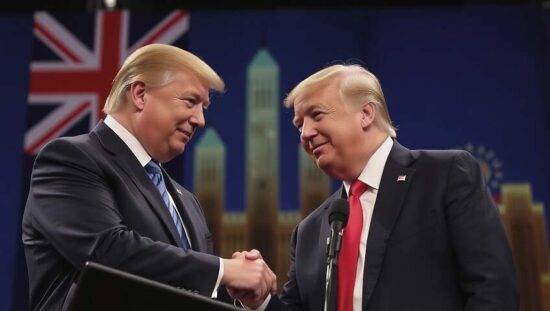Australia rejects China’s offer to jointly tackle Donald Trump’s tariffs as the US escalates its trade war with Beijing. The White House recently imposed a 10% import tax on Australian goods while increasing China’s tariffs to 125% – its largest trading partner. Chinese Ambassador to Australia Xiao Qian called for common resistance as the “only way” to stop the “hegemonic and bullying behavior of the US” and appealed for cooperation with Canberra in a Thursday editorial. However, Australian Prime Minister Anthony Albanese said Australians would “speak for themselves” while Defense Minister Richard Marles emphasized that the country would not “hold China’s hand.” “It’s about pursuing Australia’s national interests and not about siding with China” Marles said to the Australian Broadcasting Corporation. Just hours earlier, Trump had made a drastic course correction on his sweeping tariffs, announcing a 90-day pause for countries hit by high US tariffs. Meanwhile, a 10% tariff will apply. However, China was the exception, as the US imposed additional tariff hikes after Beijing announced it would impose 84% tariffs on the US. Canberra has expressed its displeasure over the tariffs but has stated that it will not take retaliatory measures and instead seeks further negotiations with the White House. In his editorial for Nine Newspapers, Xiao wrote that the US has made trade issues into a “weapon” and expressed concern that a “weak compromise” could allow Trump to “sabotage international order” and drag the world economy into a “mire and abyss.” Australia and China maintain a “win-win and long-standing cooperation” and must work together to “secure a fair and open trading environment” he added. “The international community should resolutely speak out against unilateralism and protectionism.” Albanese told reporters on Thursday that Australia’s trade relations with China are important, but the country is also seeking other export opportunities outside the US. “Eighty percent of trade is not connected to the US. There are opportunities for Australia and we want to take advantage of them” he explained. Marles emphasized that Australia also wants to reduce its dependence on China to strengthen its “economic resilience” and will focus on diversifying trade, particularly with Indonesia, India, the UK and the UAE.





